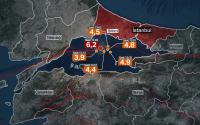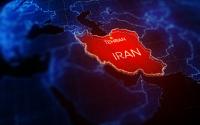Bush strategy aimed at bringing Palestine into house of compliant Arab states
26 June, 2002 The Guardian
A key aspect of President Bush's long-awaited Middle East policy statement concerned the role that he envisages for the Arab world.
It would appear that, for him, reforms - and especially those that would replace Yasser Arafat with a "new and different leadership" that is not tainted with "terrorism and corruption" - are not something that the Palestinians can be entrusted to achieve on their own.
So, as well as Americans and Europeans, "key regional states" would "work with Palestinian leaders to create a new constitutional framework and a working democracy for the Palestinian people". They would help the development of a "provisional state of Palestine", and subsequent negotiations that would lead to a final settlement.
The regional states he mainly has in mind are Jordan and Egypt, not - Arab commentators point out - because they have the democratic qualifications for the task, but because they are the most pro-American and, as the two states that have made formal peace with Israel, have the most interest in getting the Palestinians to do likewise.
For Mr Bush, Syria also constitutes a "key regional state", but, dividing the world into nations that are "either with us or against us in the war on terror", he clearly indicated that it had yet to choose to which camp it belonged. He called on it, as proof of its desire for peace, to stop the flow of money, equipment and recruits to terrorist groups "seeking the destruction of Israel", including Hamas, Islamic jihad and Hizbullah.
To whatever camp they belong - be they "moderates" or "radicals", as the US classifies them - the whole Arab world cannot but regard Bush's policy pronouncement as perhaps the most dramatic display so far of his administration's incorrigible partisanship.
"Blind support for Israel", trumpeted one Beirut newspaper; "Sharonian in letter and spirit," said another, "amounting to a US green light for Israel to upgrade its aggression against the Palestinians to include Lebanon and Syria too."
As they see it, by imposing such stringent, indeed impossible, conditions on the Palestinians and none that really mean anything on Israel, Bush has virtually given Sharon a free hand to press on with objectives that have now become open and undisguised: reoccupy the West Bank, bury the Oslo accords, and replace the Palestinian Authority with a puppet administration in nominal control of at most 42% of the West Bank.
The accompanying sop to the Palestinians - the establishment of a "provisional" Palestinian state - is seen as the latest in the long line of stratagems that have informed Middle East thinking for almost three decades: the deferral of all the most intractable, "final status" issues into an indefinite future. This time, however, the stratagem is more blatant and bizarre than ever. "A provisional state," said Beirut's al-Safir newspaper, "to ensure a permanent occupation."
Real Arab opinion is not so far reflected in official pronouncements, at least not from Egypt and Jordan. They habitually clutch at any straw, such is their anxiety for a resumption of the peacemaking and their dependence on the US to bring it about.
President Mubarak called the Bush statement "balanced", and claimed that he did "not see in it the removal of Arafat, but a demand for reforms of the PA". Jordan found it "extremely important that the US is now taking the initiative to put an end to the conflict".
Both regimes clearly realise that their own open connivance in a US-Israel bid to engineer Arafat's overthrow would further damage their reputation in the eyes of an Arab public already disgusted at official impotence and paralysis over Palestine.
This is not to say, however, that, invited to participate in the establishment of the new Palestinian "democracy", they would not quietly collaborate at Mr Arafat's expense. That, at least, is what many Arab commentators suspect.
"Who are these Arab despots," asked one in a Kuwaiti newspaper, "now preaching democracy?" All agree that the Palestinians themselves may sincerely want it, but all that the US and Israel want, they say, is a Palestinian regime whose security services are at Israel's disposal and whose negotiators ask for no more than Sharon is ready to grant them.
Since their national struggle began, the Palestinians always prided themselves on their so-called "independence of decision-making" vis a vis Arab regimes which seek to appropriate their cause for their own ends.
It is no secret what it is all about, said the Jordanian commentator Tarik al-Massarwa, "it is about bringing the Palestinians back into the house of Arab obedience". Whether they could ever manage it is another matter.






